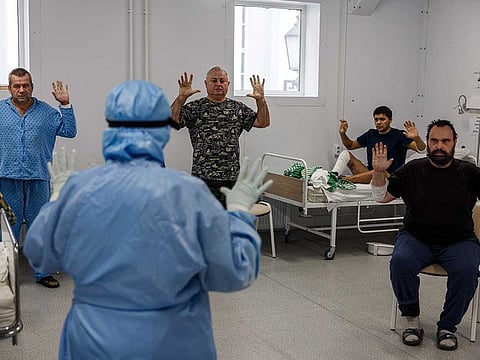Staying vigilant against Covid-19
Infections are soaring in Europe once more — a warning for us all

Almost two years into our fight against coronavirus and it appears as if much of Europe is no farther ahead in overcoming the worst of the pandemic.
With the onset of winter, a season that traditionally is associated with the arrival of an annual flu season, colder weather that creates difficulty for those with lung ailments — and coronavirus weakens the lungs of many who have previously contracted the virus — along with a significant rump of citizenry that refuse vaccinations, health experts warn that the continent is now firmly in the grip of a fourth wave.
WHO, the World Health Organisation, is reporting that deaths from coronavirus infections rose 10 per cent over the past week, firmly making it the epicentre in the fight against Covid-19.
The rise in cases is worrying, given that European Union nations, who were initially slow out of the gate when it came to widespread vaccination programmes, had managed in recent months to pick up the pace effectively in getting needles into as many arms as possible.
Onset of winter
While the onset of winter is one cause, so too are the effects of health systems across Europe that had been under tremendous strain from an unprecedented demand for service, with the result that many people with other conditions were left largely untreated. As those conditions have progressed, those sick people are now more vulnerable to Covid-19, continuing the circle of infection and spread.
In Russia, infection numbers are at their highest level in months — figures that point to the link between colder temperatures and a greater number of coronavirus cases linked to lung conditions.
But there is also another element that is central to the rise in infections and Covid-related deaths. Infection rates are highest among those who have declined vaccines, and we are also reaching a stage where those initially jabbed in the first wave of vaccines are now in need of booster jabs. That’s one reason why many nations are pushing the roll-out of booster shots to as many as quickly as possible, often with the same urgency that came with the initial roll-out of the vaccine.
The lesson from the current situation in Europe is that we can never drop our guard against the coronavirus as any lapse brings a surge. In the Netherlands, restrictions are being reintroduced, with bars and restaurants limiting capacity and opening hours have been severely restricted.
Given the need for action, how soon will it be before others follow Austria’s extreme example and impose lockdowns on those who are unvaccinated?







